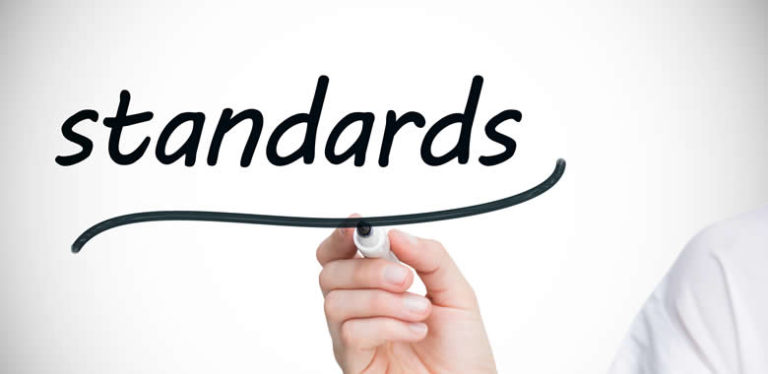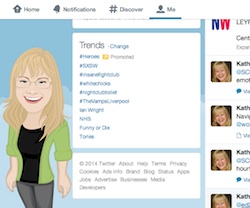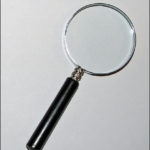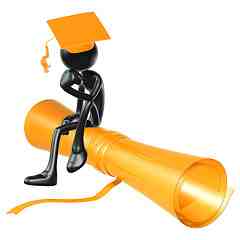Featured
Posted by Kathy Brodie on September 4, 2010.
Kathy Brodie on September 4, 2010.
CPD Beyond the EYP: What are the Options?
 I achieved my EYP status in 2008 and since then the nature of my work has changed completely. I am now much more focused on training and coaching other practitioners and so recently I was prompted to think about the next steps in my continued professional development. From talking with other EYPs and from discussions at our Cheshire EYP network, it seems I’m not the only one doing so.
I achieved my EYP status in 2008 and since then the nature of my work has changed completely. I am now much more focused on training and coaching other practitioners and so recently I was prompted to think about the next steps in my continued professional development. From talking with other EYPs and from discussions at our Cheshire EYP network, it seems I’m not the only one doing so.
Most people fall into one of two camps: those who have an interest in broadening and deepening their knowledge and those who now find their new job roles as EYPs are calling for new skills.
New Skills for a New Role
Depending on their role and the size and organisation of their setting, EYPs may need a variety of new skills.
Leadership and management. These courses are particularly relevant for EYPs who have taken on management responsibilities within their setting as part of the EYP role.
Train the trainer and Presentation skills. Many EYPs are now finding that they are taking a training and development role for their staff, having never been taught to train adults. In house training can be a particularly valuable and cost effective tool for raising the standard of practice within a setting.
Recruitment and selection. Some EYPS will already be familiar with recruitment of other staff, but others, particularly those who have been employed for the first time as an EYP, may find this a particularly daunting part of the job.
Innovation, change, creativity and reflective practice. This is a core set of skills for the EYP who is a leading change agent in their setting. Reflective practice is a good place to start innovation and change. It is also vital that new ideas and practice needs to be coupled with sustainability.
Mentoring and coaching skills. The best settings will always be encouraging practitioners with their own CPD. By involving the EYP as mentor and/or coach within the setting there are mutual benefits. It’s great CPD for the EYP and the practitioners being mentored will benefit.
Assessing, mentoring and moderating. Some Universities approach their EYPs to come back and assess on the EYP course. This has the benefit of the assessor having firsthand experience of the amount of time and work which goes into achieving the Status.
Broadening and Deepening Your Knowledge
Some EYPs may want to become an expert on specific subjects such as schemas or see a future career as trainers, lecturers or researchers. For them, more advanced qualifications, such as the DTLLS, may be appropriate.
Masters degree. Some EYPs find that they have developed specific interests and would like to pursue these in more depth. The setting will benefit from having a highly knowledgeable practitioner who can lead practice in that area.
Research. Research studies are invaluable to moving our knowledge forward about children’s learning and development. Universities and institutes such as the Max Planck institute may have research opportunities for EYPs to investigate an area of interest or particular relevance to their work.
How to Decide What to do Next
But how do you decide your CPD route?
First you have to consider the needs of your current role. Are there any skills gaps, what are you being expected to do? If you find that your role has changed, but you have received no training, then the skills route would be most suitable.
Next you need should consider how your future career may develop and how your CPD could lay the foundations for this. Would you like to move into a management role or possibly become a mentor and coach for other EYPs? This may need a combination of skills updating as well as some more academic qualifications.
Finally you should have an interest in the subject area. We all know that children learn best when they are doing something they are interested in and in my experience, it’s even more true of adults.
Note
There have been a number of updates to the Standards, requirements and Government policy. The Early Years Professional Status has been replaced with a new Status – Early Years Teacher Status – which still has 8 Standards, but you now have to hold GCSE maths, English and science to do the course.
In addition, you have to pass the professional skills tests. You can find out more information from the Government website here
* Image courtesy of Lumax Art

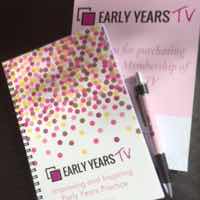 In the very near future, we’ll be offering a monthly membership, where, for a small fee, you will be able to access the previous videos from the library back catalogue as well as watch the current videos for as long as you are a member. You can buy Lifetime Membership now, which is a one-off payment for all videos, forever – and there’s a FREE Early Years TV notebook and pen for the first 100 Lifetime Members!
In the very near future, we’ll be offering a monthly membership, where, for a small fee, you will be able to access the previous videos from the library back catalogue as well as watch the current videos for as long as you are a member. You can buy Lifetime Membership now, which is a one-off payment for all videos, forever – and there’s a FREE Early Years TV notebook and pen for the first 100 Lifetime Members!

 I was delighted to hear of another Conference being held in the North West of England. It is an International Conference and is a partnership between the University of Chester and International Early Years, on Friday the 3rd of July at the University of Chester’s Warrington campus.
I was delighted to hear of another Conference being held in the North West of England. It is an International Conference and is a partnership between the University of Chester and International Early Years, on Friday the 3rd of July at the University of Chester’s Warrington campus.